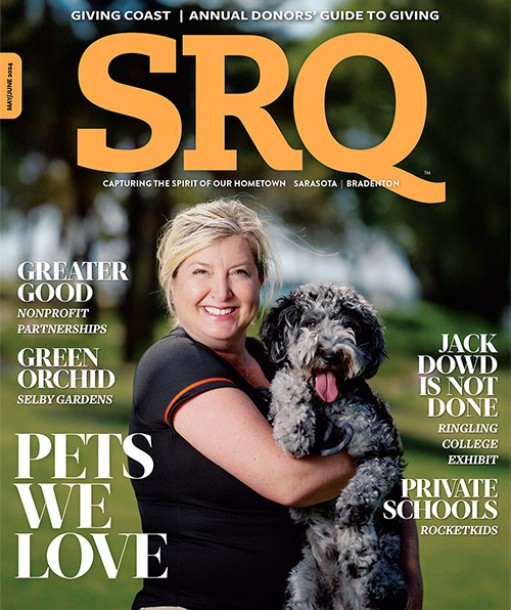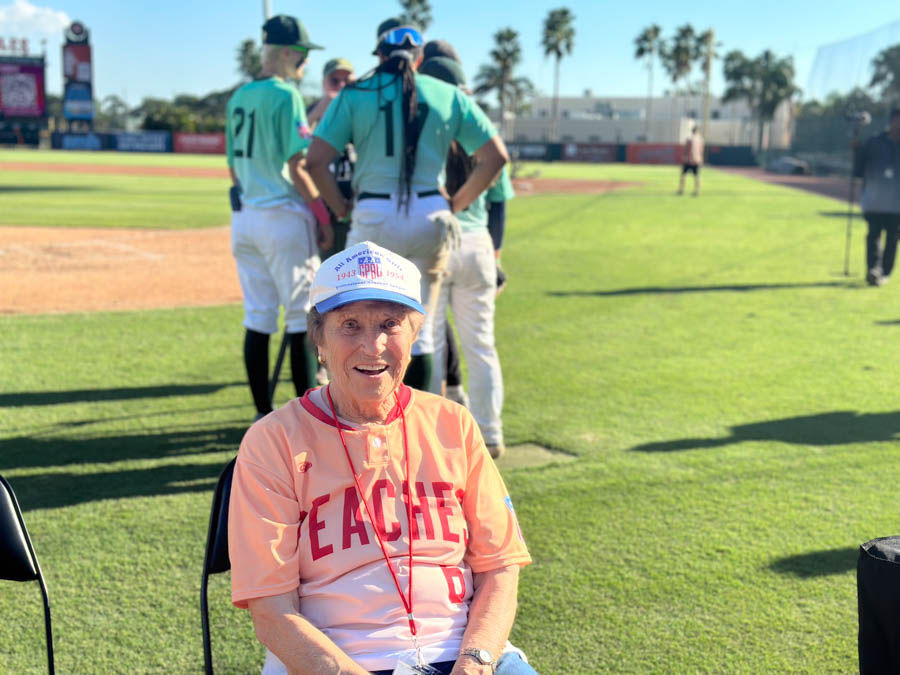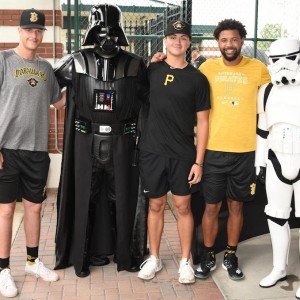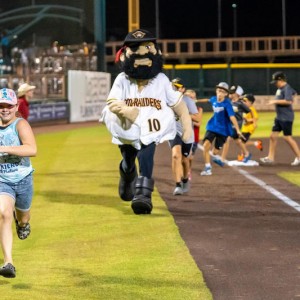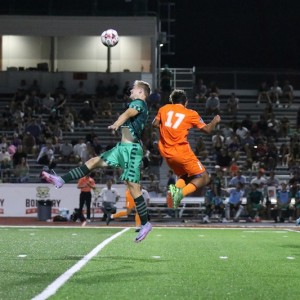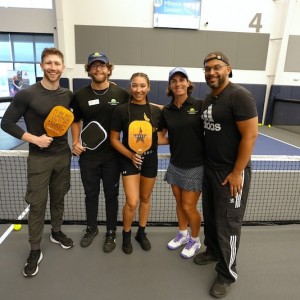Sue Zipay has always loved baseball. The sport had always been a part of her, a piece of her identity growing up as a “tomboy” in Hingham, Massachusetts. But when Sue reached high school, something changed. Baseball was no longer her sport–girls weren’t allowed to play. Instead, she had to play softball, a sport that she hadn’t spent years playing, adoring and excelling at. Sue never forgot that moment. That was in 1952. Flash forward 71 years and Sue still loves baseball. No surprise there. What is surprising, however, is that in the 70-odd years after Sue was forced to leave baseball there still isn’t a place for women in the sport. And that fires Sue up. “I’ve had girls who are 13, 14, 15 years old come crying to me about how now that they’re out of Little League they have to switch to softball and that they don’t like softball and I think to myself, that was me so many years ago,” she says. “I had to play softball while I looked over at the boys baseball team in school and knew that I could play as well as they could.”
Sue, now a grandmother and resident of Englewood, is working to change that. While the passing of Title IX in 1974 prohibited sex-based discrimination in any school or education program and gave way to a considerable increase in the funding of and participation in women’s student athletics, it also pushed more and more girls into softball. If a female student athlete wanted to play baseball past Little League, they had to find a club team of their own. If they wanted to receive athletic scholarships or play at the next level, it’d have to be in softball.
That’s why Sue is championing the cause, having held the 2nd Annual All-American Women’s Baseball Classic Tournament, a three day event hosted by American Girls Baseball in Sarasota this past November. The tournament, which included 52 female baseball players from across the country–many of whom were recently selected to be on USA Baseball’s 2023 National Team–featured four teams with eight professional coaches as well as a free skills clinic hosted by tournament players. It’s an effort by Sue and other like-minded individuals to give girls a place to play. After all, once Sue graduated high school, she had a place to play the sport she loved.
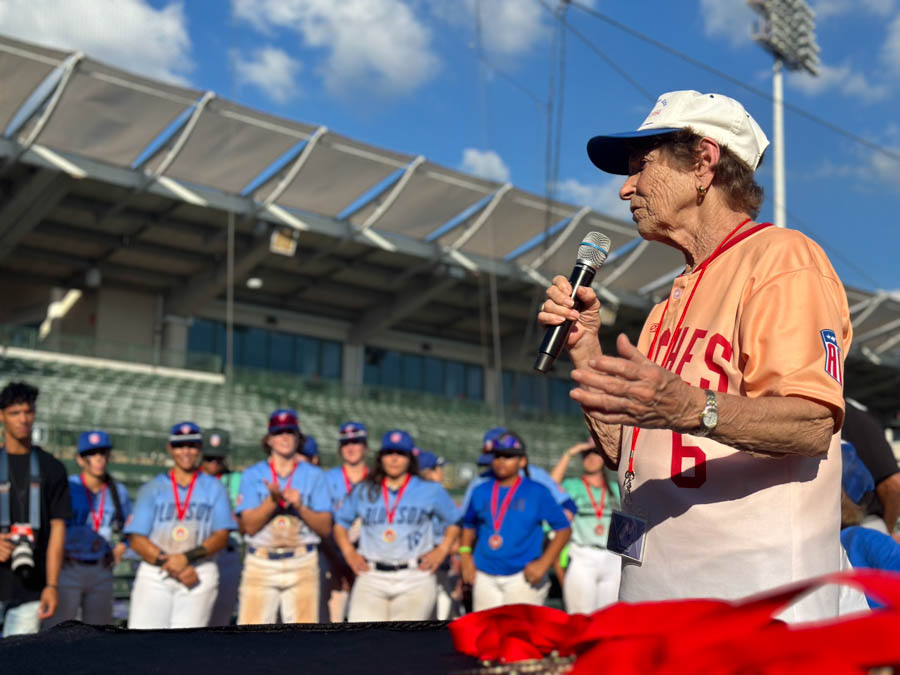
In 1953 and 1954, Sue played professional baseball for the Rockford Peaches in the All-American Girls Professional Baseball League (AAGPBL). Yes, that league, the one immortalized in the 1992 film A League of Their Own, a league started in 1943 by Major League Baseball executives to keep the sport in the public eye whilst many a big league star went off to serve in World War II. “I’d just graduated from high school and my softball coach said, ‘Sue, do you know that there’s a professional baseball league for women in the Midwest?’ and I couldn’t believe it, I thought she was kidding. It just so turned out that the chaperone for the Peaches lived about 30 minutes away from where I grew up in Hingham, Massachusetts,” says Sue. “So I met her, threw a few balls in the driveway and two weeks later I got a contract in the mail from Rockford with train tickets to South Bend, where they were having their Spring Training. And so I went, at 18 years old, having never been out of the state and scared to absolute death, with high hopes of becoming a millionaire professional baseball player.”
Like a Broadway show, the Peaches played eight games a week, with two on Sunday. While her two years with the Peaches didn’t make Sue a millionaire–hardly any professional athlete, male or female, was making that much at the time–it did fuel her love of the game. She spent her summers with a host family in Rockford, Illinois, her days practicing and her nights playing game after game after game. That fire has continued to burn in Sue since her playing days, motivating her to put on this tournament in the hopes of getting a women’s professional baseball league up and running once again. “Here’s my vision. On the west coast of Florida, we’ve got all of these Spring Training stadiums from the Orioles to the Braves and so on. We only need four of them,” says Sue. “If each of those stadiums could adopt a team, like say the Peaches or the Blue Sox, we could run a league in the winter time, during those months where the stadiums are looking for entertainment. I don’t know how to go about enticing these stadiums to take a good look at this concept, but I do know that all of the people that come down here in the winter would love to see these women play.”




